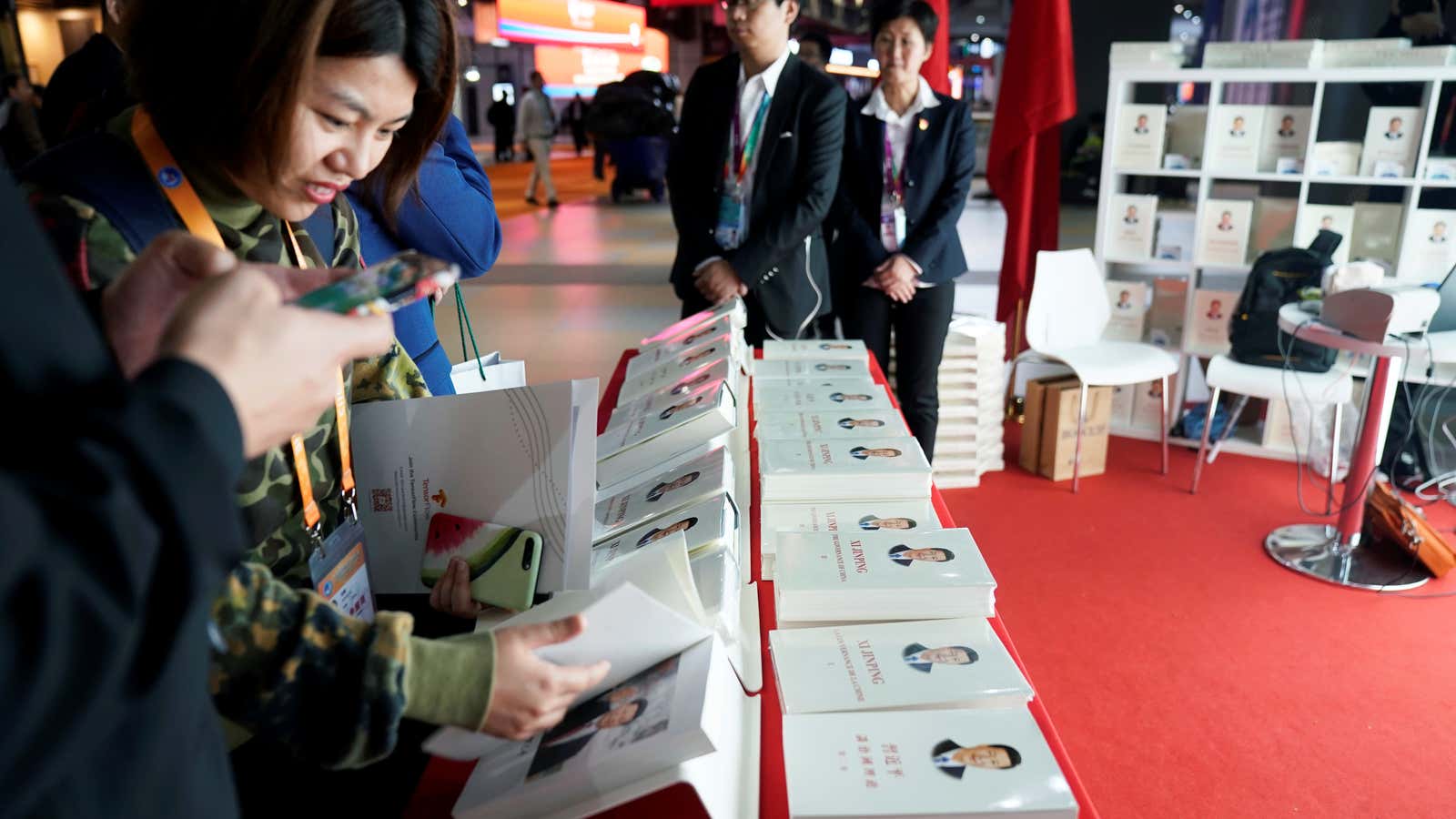An incident involving librarians in a provincial library burning books is stirring unease in China that the ongoing crackdown on free speech may have gone too far.
In a photo that circulated on Chinese social media on the weekend, workers at a library located in Zhenyuan county in north-central Gansu province were shown burning books in an act the library described (link in Chinese) as a “quick and comprehensive” filtering and destruction of “illegal” publications, including books related to religion. The library said it wanted to enhance its function as a major propaganda tool in terms of promoting mainstream Chinese values. The post, which was originally published on Oct. 22, has since been deleted.
In total, the library destroyed 65 books under the supervision of officials from the Zhenyuan culture affairs bureau, according to the post. Zhenyuan’s propaganda department told a local Chinese publication (link in Chinese) that it was looking into the incident.
Under Chinese leader Xi Jinping’s tightening grip on the freedom of speech, religion, and ideas, authorities have been conducting a large scale clean-up of books in libraries in elementary and middle schools since October, according to a notice (link in Chinese) published by the Ministry of Education. The ministry ordered schools to remove books deemed “illegal” or “inappropriate,” including those that are “against the ideologies of the party,” “describe the party, the nation, or the military’s history in a mocking way,” or “promote religious doctrine, theory, and rules.”
The episode stirred an unusual backlash on Chinese social media, with many saying that it reminded them of the country’s painful history of repressing intellectuals and academic freedom. Many cited the example of the tyrannical emperor Qin Shihuang, who unified China more than 2,000 years ago and directed the “burning the books and burying the scholars” (焚书坑儒) movement which led to some 460 Confucian scholars being buried alive for their opposition against imperial policies.
“Books are used to spread science and culture, to perpetuate human civilization… books are not to be burnt!” said one user on Weibo. Many questioned what would be the next to come after this episode, saying they feared that this could be the beginning of another Cultural Revolution. “This is a nightmare for people who read and write books. First they demonize intellectuals, and now they start to burn books,” said another user.
Notably, not even during the reign of Mao Zedong—who boasted that he had “outdone” Qin Shihuang 100 times over by killing more intellectuals than the emperor—did systematic book-burning take place. In a now-deleted post on social network Weibo, lawyer Chen Youxi wrote that “anti-revolutionary” and “rightist” books were stored away in libraries for “future criticism” during the Cultural Revolution, and were not burned. He said that Zhenyuan, a “backward” place, was trying to take the lead in a wave of “competing to be the most leftist,” and said “any intellectual or government official who still has a conscience” should castigate the library’s behavior.
In a rare display of criticism, state-owned newspaper Beijing News published an editorial (link in Chinese) yesterday (Dec. 8) that criticized Zhenyuan library’s behavior as having “exceeded the acceptance level of society,” and questioned the need for books related to religion to be removed and destroyed, adding that the behavior has violated China’s own rules on religions and publications. The article was later deleted.
